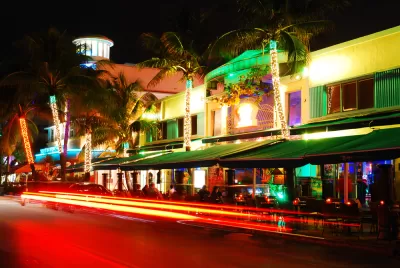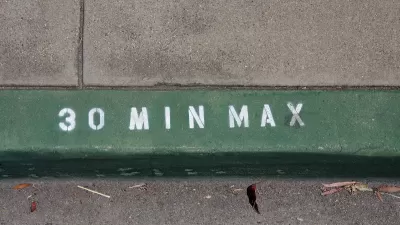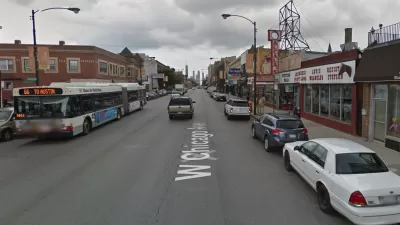Five panelists discussed the future of curbside parking and agree that there are technological and financial incentives to change priorities for these spaces.

A panel of transportation and logistics experts at the Vision Zero Cities Conference by Transportation Alternatives predicted continued and long-lasting changes in the way curbs, sidewalks, and curbside parking spaces are organized, managed, and prioritized. Since the incremental reopening of restaurants and other amenities since the onset of the coronavirus pandemic, space formerly dedicated to private vehicles is increasingly finding alternative uses.
But we have more than the coronavirus to thank for these shifting behaviors and innovations in the use of parking spaces. "That hopeful future might seem like a far-off dream for those who have sat through interminable community-board meetings where people have fought over the last inch of parking. But it’s probably achievable in the next 10 to 15 years — because technology and financial incentives will drive it," writes Eve Kessler, describing the panelists' insights.
Dynamic usage for curbside usage, according to the five panelists, will also make streets safer by reducing instances of vehicles stopping in bike lanes. The speakers heightened that technology could help drivers identify parking and avoid similarly dangerous situations. "Dawn Miller, head of policy and partnerships at the data firm Coord, said that mobile apps would soon direct deliverers — not just those in trucks, but also those in smaller vehicles — to available spaces in the last mile before a stop. Such precision would help eliminate hazards like parking in bike or bus lanes," reports Kessler.
Discussion about pricing for curb space is ongoing. Large delivery companies and small businesses alike stand to benefit from priced curb zones. "Pricing the curb would entail a balancing act for different users, the panelists agreed. Persons with disabilities, for example, should have complimentary access," Kessler writes.
FULL STORY: Vision Zero Cities: Experts Foresee Diverse Curbside Uses

Alabama: Trump Terminates Settlements for Black Communities Harmed By Raw Sewage
Trump deemed the landmark civil rights agreement “illegal DEI and environmental justice policy.”

Planetizen Federal Action Tracker
A weekly monitor of how Trump’s orders and actions are impacting planners and planning in America.

The 120 Year Old Tiny Home Villages That Sheltered San Francisco’s Earthquake Refugees
More than a century ago, San Francisco mobilized to house thousands of residents displaced by the 1906 earthquake. Could their strategy offer a model for the present?

Ken Jennings Launches Transit Web Series
The Jeopardy champ wants you to ride public transit.

BLM To Rescind Public Lands Rule
The change will downgrade conservation, once again putting federal land at risk for mining and other extractive uses.

Indy Neighborhood Group Builds Temporary Multi-Use Path
Community members, aided in part by funding from the city, repurposed a vehicle lane to create a protected bike and pedestrian path for the summer season.
Urban Design for Planners 1: Software Tools
This six-course series explores essential urban design concepts using open source software and equips planners with the tools they need to participate fully in the urban design process.
Planning for Universal Design
Learn the tools for implementing Universal Design in planning regulations.
Clanton & Associates, Inc.
Jessamine County Fiscal Court
Institute for Housing and Urban Development Studies (IHS)
City of Grandview
Harvard GSD Executive Education
Toledo-Lucas County Plan Commissions
Salt Lake City
NYU Wagner Graduate School of Public Service





























